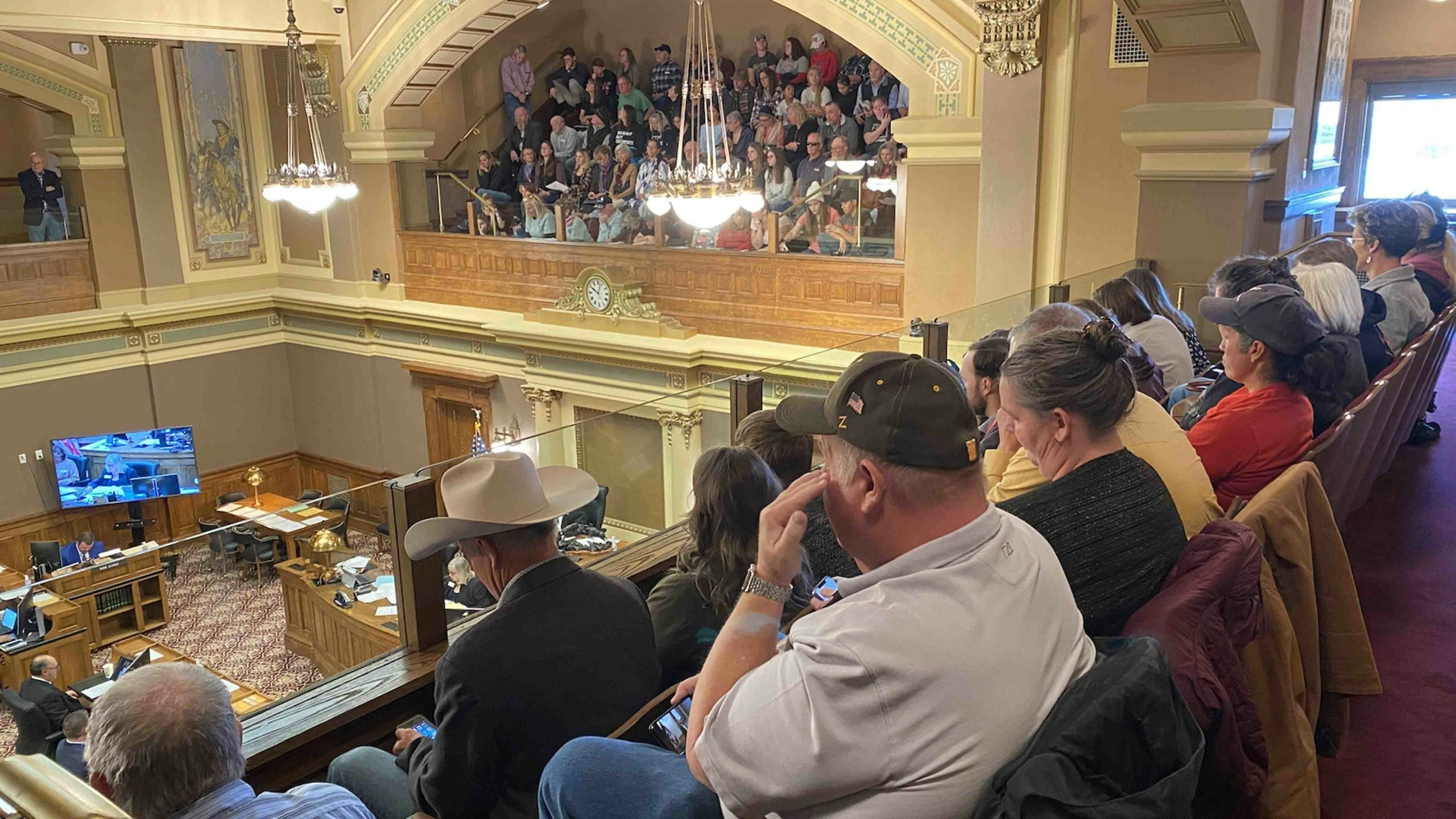By Clair McFarland, Cowboy State Daily
Wyoming lawmakers really don’t want anyone’s DNA data sold to foreign countries or used for internet cookies without consent.
Those are just two features of a bill now contemplated in the House of Representatives, House Bill 86, which this week cleared both its introduction and a Judiciary Committee review with unanimous approval.
HB 86 is aimed at companies such as Ancestry.com and “23 And Me,” which map human DNA to trace family origins or track health issues.
If the bill becomes law, it would compel DNA-mapping sites to provide a “clear and complete” rundown of privacy policies to the consumer, to inform the consumer about DNA data use and storage, and to get consent for those policies.
The companies also would have to seek “separate express consent” to keep biological samples, to target consumers for marketing based on their genetic data or to let other companies use the genetic data for marketing.
The companies would need to “require valid legal processes” for giving someone’s genetic data over to law enforcement without “express written consent.”
And lastly, the companies would have to keep a “comprehensive security program,” the bill states, to prevent DNA files from being hacked – and they would be forbidden from handing genetic data to any real or fake insurance entities, or to their client’s employer, unless the client provided clear written consent.
Foreign Sales, Cold Cases
“If either one of these companies were sold to a foreign country, are there any federal laws in place that would protect the consumer?” asked State Rep. Rachel Rodriguez-Williams, R-Cody, in a Thursday meeting of the House Judiciary Committee.
“There are a lot of safeguards in place to make sure consumer genetic data and other forms of intelligence are not accessed by foreign actors,” said Ritchie Englehardt, the shared government affairs head for the two companies.
Englehardt said Ancestry.com and “23 And Me” can’t transfer genetic data, in a sale or otherwise, without consulting with consumers and updating their agreements.
“The terms of service are in effect until a consumer agrees to change them,” he added.
He also said the businesses run a “closed loop” system that doesn’t allow law enforcement access, but people can offer their DNA for law enforcement investigations by downloading it into Gedmatch.com.
Once that is done, the data becomes publicly available.
House Judiciary Committee Vice Chair Rep. Art Washut, R-Casper, had asked if the law would prevent police from working with DNA-service clients on criminal cases. Washut referenced the case of the “Golden State Killer,” Joseph James DeAngelo, who was linked to a dozen murders and 42 rapes through a voluntary entry by his distant relative in Gedmatch.
Washut formerly worked for the Casper Police Department.
Little Startups
According to Englehardt, the two companies he represents already have these control and consent mechanisms in place. But, he said, placing them in the law could hold smaller companies to the same standard.
“There are a lot of small startups out there popping up every day online, compelling consumers to download their results from a service like ours and upload it to theirs – and once that happens,” he said, “unless there’s statute, they can use that data however they want to.”
Englehardt and House Judiciary Chair Rep. Jared Olsen, R-Casper, both noted in committee that the passage of this bill into law would make Wyoming the most protective of genetic data in the U.S.





